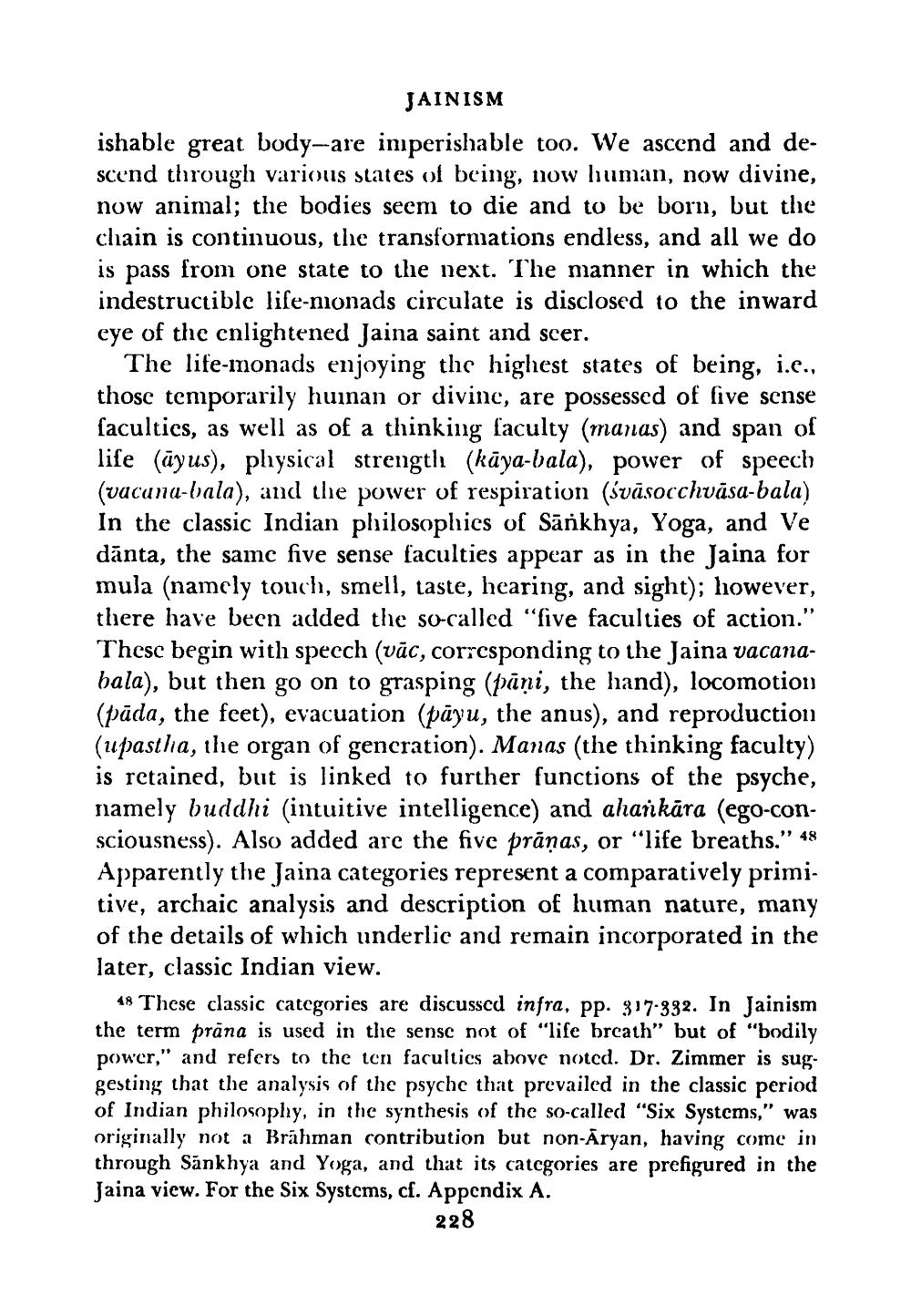________________
JAINISM
ishable great body--are imperishable too. We ascend and descend through various states of being, now human, now divine, now animal; the bodies seem to die and to be born, but the chain is continuous, the transformations endless, and all we do is pass from one state to the next. The manner in which the indestructible life-monads circulate is disclosed to the inward eye of the enlightened Jaina saint and scer.
The life-monads enjoying the highest states of being, i.c., those temporarily hunan or divine, are possessed of five sense faculties, as well as of a thinking faculty (manas) and span of life (ayus), physical strength (kāya-bala), power of speech (vacana-bala), and the power of respiration (śvāsocchvāsa-bala) In the classic Indian philosophies of Sankhya, Yoga, and Ve danta, the same five sense faculties appear as in the Jaina for mula (namely touch, smell, taste, hearing, and sight); however, there have been added the so-called "five faculties of action." These begin with speech (vāc, corresponding to the Jaina vacanabala), but then go on to grasping (pāņi, the hand), locomotion (pāda, the feet), evacuation (pāyu, the anus), and reproduction (upastha, the organ of gencration). Manas (the thinking faculty) is retained, but is linked to further functions of the psyche, namely buddhi (intuitive intelligence) and ahańkāra (ego-consciousness). Also added are the five prānas, or "life breaths." 48 Apparently the Jaina categories represent a comparatively primitive, archaic analysis and description of human nature, many of the details of which underlic and remain incorporated in the later, classic Indian view.
48 These classic categories are discussed infra, pp. 317-332. In Jainism the term prana is used in the sense not of "life breath" but of "bodily power," and refers to the ten faculties above noted. Dr. Zimmer is suggesting that the analysis of the psyche that prevailed in the classic period of Indian philosophy, in the synthesis of the so-called "Six Systems," was originally not a Brahman contribution but non-Aryan, having come in through Sankhya and Yoga, and that its categories are prefigured in the Jaina view. For the Six Systems, cf. Appendix A.
228




